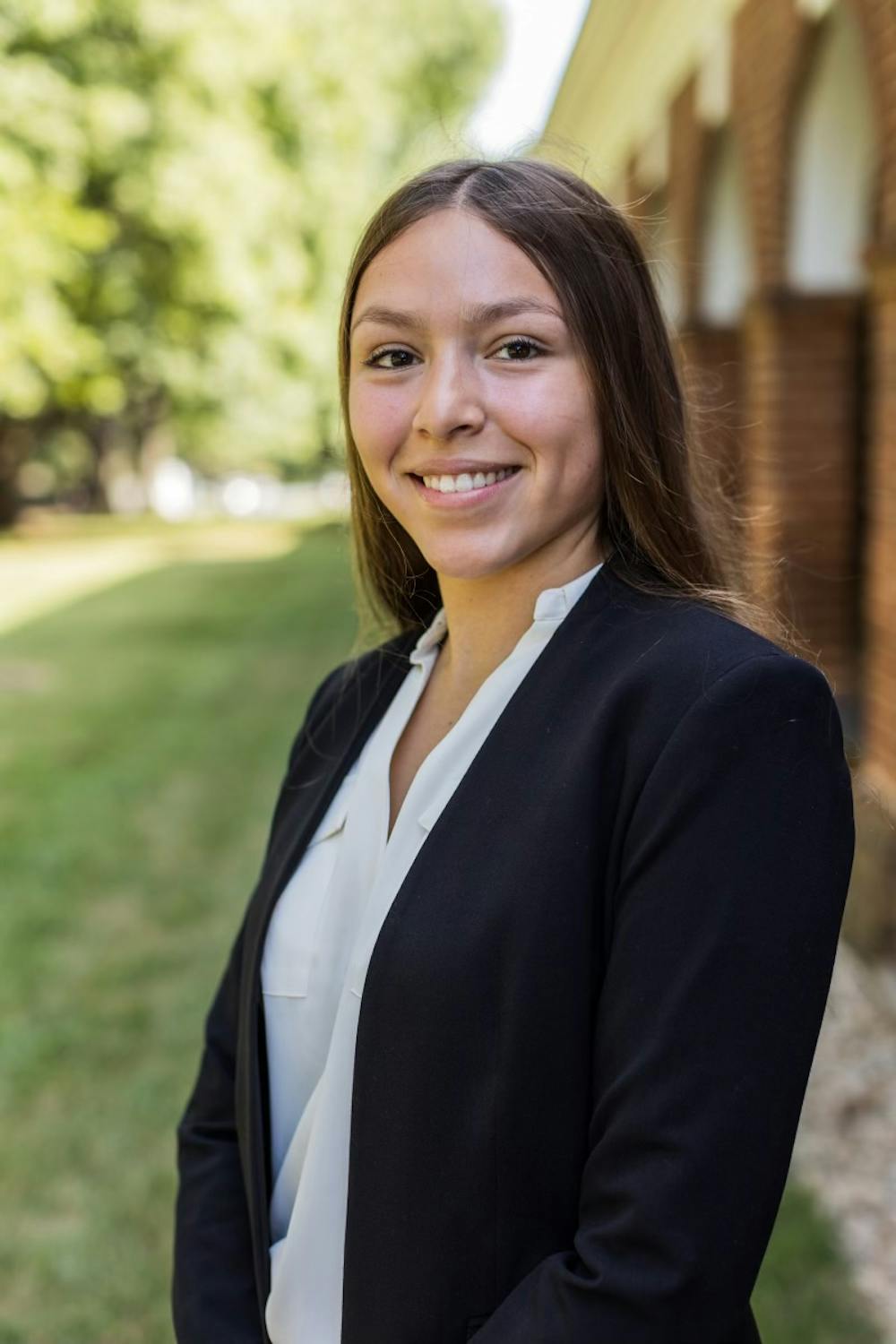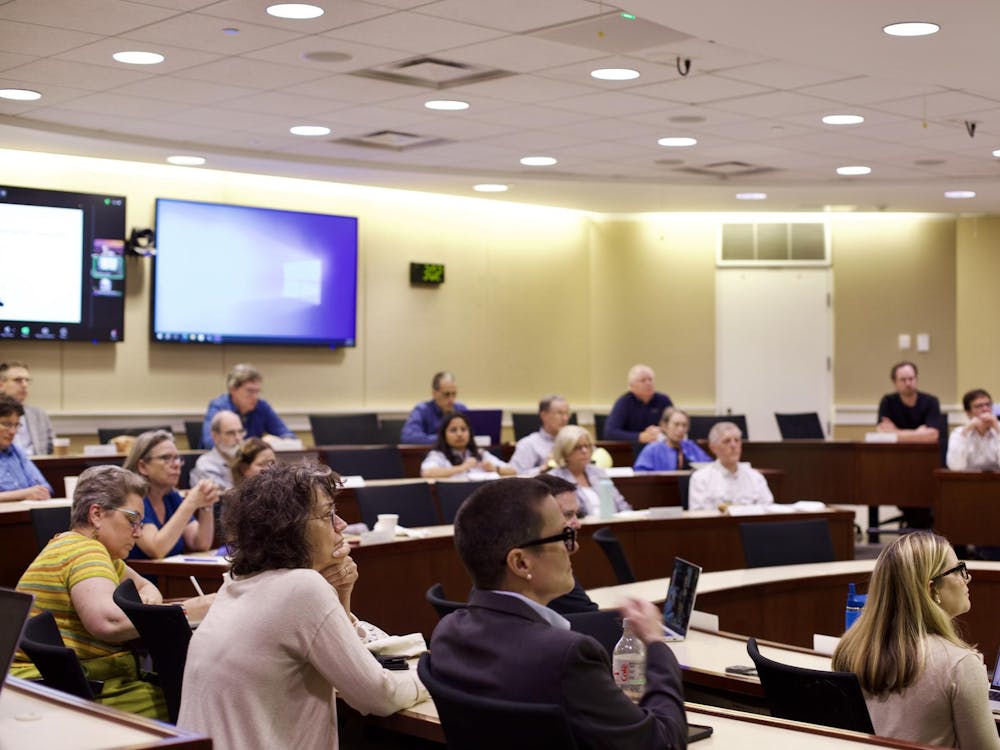After holding several positions in Student Council, third-year Batten student Lillian Rojas will now serve as the student member of the Board of Visitors during the upcoming 2023-2024 academic year. Rojas aims to be a voice for all students, especially regarding their views on safety on Grounds and the 2030 Strategic Plan.
The student member serves as a non-voting member of the Board of Visitors and is selected by members of the Board and a Student Council selection committee. As a representative for students in the Board’s decisions, Rojas anticipates challenges with giving an equal voice to all student views, even ones she doesn’t personally agree with.
“This is not an easy job at all, trying to get a collective perspective,” Rojas said. “It will be a big challenge making sure the Board knows what all students are saying rather than just what the loudest students are saying.”
Rojas — who will succeed Lily Roberts, current student member of the Board and fourth-year Architecture student — was elected March 3.
Rojas currently serves as chair of the Student Council representative body and has served as a representative on Student Council since her first year. Though she will not be a member of Student Council in her new role, she plans to continue working towards long-term solutions for issues that affect the entire student body.
Rojas said that she plans to prioritize working with the Board on improving safety for students on and off Grounds — especially considering the shooting in November and recent increase in gun-related community alerts. Rojas said the Board needs to take steps to make Grounds feel safer and to better the Charlottesville community as a whole.
“[There are] a lot of issues with safety and security, I think that is something that every single student at U.Va can collectively come together and agree on,” Rojas said.
Rojas also said a key concern of hers is the increased division among the Board. Since controversial text messages from Board member Bert Ellis leaked, there have been outcries from students and faculty over his behavior being inappropriate. In a full Board meeting on March 3 University Rector Whittington Clement condemned the messages and said they weren’t professional. Ellis apologized to the Board.
“The Board has gotten very political very, very fast,” Rojas said. “I think now’s the time for students on Grounds to set aside those differences and to kind of reach across the aisle and work with people who they typically haven't worked with.”
Rojas hopes as a student member she will be a voice that builds coalitions and brings students together. Promoting unity and bipartisan outlooks are ways she hopes to improve relationships between students and between Board members when looking for solutions to issues.
She said one way democracy and dialogue have been fostered among students with different beliefs is through the Karsh Institute of Democracy, a new center designed to address challenges facing democracy. The institute, funded by a $50 million donation from Martha and Bruce Karsh, is to be located in a redevelopment of the Emmet-Ivy Corridor as part of the University’s 2030 Strategic Plan.
“I'm very excited to talk to the Board more about steps that can be taken to improve democracy and improve dialogue here on Grounds,” Rojas said.
The 2030 Strategic Plan — an initiative aimed at making the University the best public university by the end of the decade — is one of the major projects the Board oversees. The plan was launched in 2019 and includes a variety of initiatives including increasing funds for research initiatives, improving sustainability and creating a campus in Northern Virginia.
Rojas said through her role of representing student voices on the Board, she plans to inform members on what aspects of the 2030 plan are successful and how they are impacting students. The expansion of financial aid is one of the plan’s initiatives that she is proud of as it makes the University more accessible to students.
“I think we can keep expanding that and allow more and more students to be able to come to [the University] at a price that is actually fitting to them rather than overbearing,” Rojas said.
She also mentioned looking forward to the plan to have second-years live on Grounds, as she thinks it will be beneficial for students to continue living with a diverse group of other students they wouldn’t connect with otherwise.
Rojas said she will continue to represent students and be an advocate for student governance, which she believes the Board should stay informed on. Rojas hopes they continue to see the work students are doing through making changes and getting new students involved in the traditions of the University.
“I want the Board to know that students here at [the University], we value student self governance,” Rojas said. “It might be looking different than it did when certain Board members went here, in terms of what it meant and what it looks like, but it's changing for the better.”







